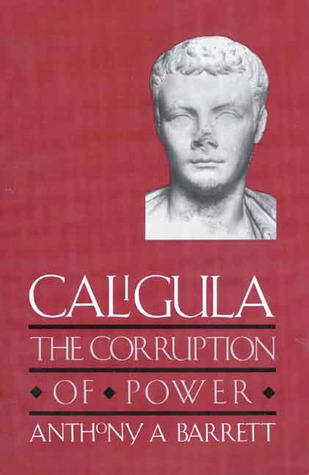He arrived at the highest seat of power late in life, after a career that most considered inappropriate for a world leader. He consolidated his popularity by the successful invasion of a small island. Although his influence on the structure of government was momentous, he was mocked as sleepy and forgetful. His enemies said his wife had too much influence over him and even published scabrous stories of her unfaithfulness.
Of course, I am talking about the Emperor Claudius. These books on the early Roman emperors might tempt some people into making irresponsible analogies with our own day. They are well researched and clearly written. They provide good introductions for graduate students into the scholarly problems of their subjects. Griffin has an interesting discussion of Nero’s problems with the imperial system, while Levick reveals an occasional dry wit.
These authors are well aware of the problems inherent in their task. “Recent research,” Griffin notes, “tends to frown on the composition of imperial lives, favouring instead works that illuminate the general structure of the imperial system and the long processes that explain the development of the Empire.” There are good reasons for this skepticism. Our ancient sources include the biographer Suetonius and the political historian Tacitus, authors of two well-written and carefully researched pictures of the early emperors. Both represent the standard upper-class (or senatorial) attitude towards the emperors who succeeded Augustus, presenting them as immoral psychotics who ran the Roman world into the ground.
But the archaeological evidence presents a very different picture. Here we see the empire as one of the most successful governments in history, one that brought peace and prosperity to an area that stretched from Spain to Syria, from the Rhine to the Atlas Mountains of North Africa. People could travel safely and without passports from Greece to modern Turkey, from Israel to Libya. Today, tourists can travel a hundred miles into the Sahara Desert to visit Roman villas and see the remains of aqueducts and amphitheaters. The ruins of Roman cities in the Near East tell the same story of lost prosperity. The people of the Mediterranean dreamed for a millennium of restoring this prosperous and creative society. Its provincial upper class willingly gave of its wealth for buildings, literature, and popular entertainment.
The popular memory of the emperors was also far different from the senatorial version. Poor people placed flowers on Nero’s grave every year. Rebels against Rome sought popular backing by claiming to be Nero, or a descendant of his. How could misfits preside over such long-lived peace and prosperity? Is there something amiss with the upper-class story told so well by Tacitus and Suetonius?
Nero, for instance, presided over triumphs in domestic and foreign policy and a literary and artistic renaissance. Our senatorial sources concentrate on portraying him as the murderer of his (adopted) father, Claudius, and lover of his mother. One does not have to read far in the studies by J.G. Frazer and Rene Girard to notice that these are standard accusations against the victims of lynching. He was criticized for being silly, uncultured (although he had published books on the history of the Etruscans), and under the thumb of his freedmen and his (promiscuous) wives. The parallels with President Reagan are no accident. Both men are attacked for being good monarchs: protecting ordinary people from an irresponsible upper class.
Barbara Levick once makes an explicit reference to President Reagan. Did Claudius really know of the conspiracy that ended with the fall of Caligula and his own ascent to the throne, but slyly pretended to be sleepily ignorant of it? “The technique, disreputable, essentially infantile, but useful and adopted by others—by Henry II and Elizabeth against internal threats (1170 and 1587) and by Reagan in the U.S.A. against Iran and Nicaragua—is that of allowing others to act or engineering them into it, while the principal continues ‘ignorant’ of what is going on.” Their enemies, who portrayed Claudius and Reagan as silly and incompetent, had then to watch both leaders manipulating their negative images to avoid responsibility for literal or figurative coups.
The enormous mass of modern bibliography appears to have swamped Professors Barrett, Levick, and Griffin before they could adequately confront the upper-class hatred of rulers who presided over such peace and prosperity. Under the Republic, Rome had united first Italy and then the entire Mediterranean. During the second century B.C. the restraints on the Roman upper class collapsed, and the elite indulged in an orgy of foreign interventionism and welfarist domestic policies that nearly wrecked the Mediterranean. Augustus restored constraints on the political and economic elites through a monarchy. For 200 years after his death the empire enjoyed unparalleled prosperity and creativity, to the Senate’s disgust. Was it better for ordinary people to try to return to the Middle Republic or to accept the monarchy, as long as the emperor protected them? The average American faces a similar dilemma today. Our former Republic distinguished by limited government, noninterventionist foreign policy, and the free exercise of religion is gone. Should we attempt to restore it against all odds, or tolerate the new monarchs—Presidents, we call them—as long as they protect our children and our property from the worst ravages of the American upper class? It is a question that Tacitus asked, and one illumined not so much by modern bibliography as by the silent pondering of our unquiet hearts.
[Caligula: The Corruption of Power, by Anthony A. Barrett (New Haven and London: Yale University Press) 334 pp., $27.50]

[Claudius, by Barbara Levick (New Haven and London: Yale University Press) 256 pp., $25.00]

[Nero: The End of a Dynasty, by Miriam T. Griffin (New Haven and London: Yale University Press) 320 pp., $25.00]

Leave a Reply